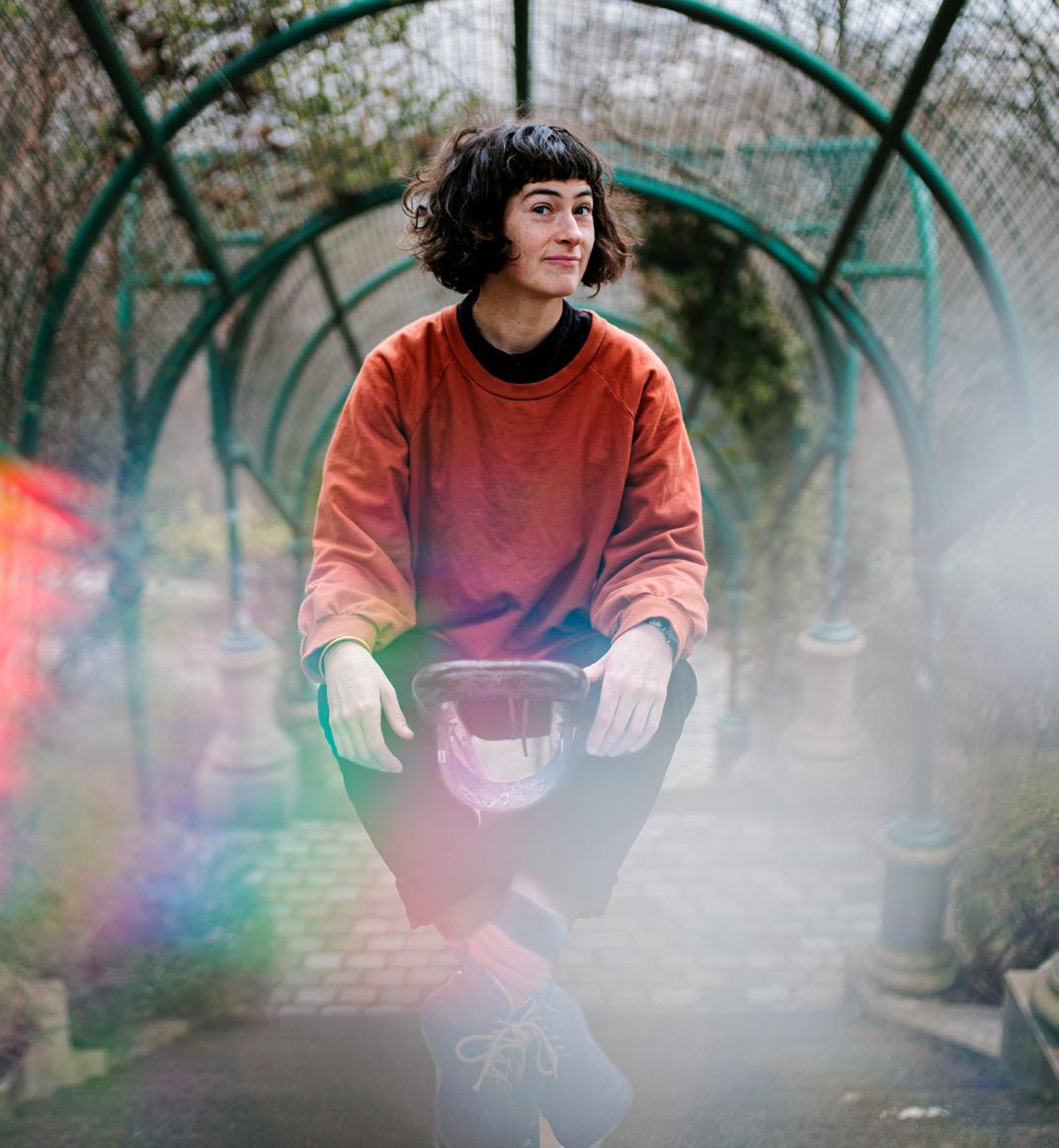Julie Byrne Love is not mortal, by Michelle Kambasha. Photography by Tonje Thilesen
JULIE BYRNE IS in southern New York State – specifically, Buffalo, where she’s visiting family in the hilltop home in which she grew up. Before she conducts this interview, she takes a short walk to break away from the hubbub of family life to the bottom of that hill where she’s met by a small portion of the Pennsylvania Railroad. It’s a train track that’s mostly barren save for the occasional freight train, transporting paper, coal, steel and the like. Deserted train lines, surrounded by equally barren, unkempt patches of land (like we’re used to in the UK) can often feel ominous and dystopian, but in this case, it seems serene: birds chirp wistfully; sometimes, and suddenly, the sound of a gentle wind brushes against the microphone of her mobile. “I thought I’d come here to clear my head before our conversation,” she says. It’s her first interview for some time, and the first since the passing of her dear friend and long-term collaborator, Eric Littmann. To describe this conversation as a ‘promotional’ activity for the contemporary folk songwriter’s latest and best album The Greater Wings (which follows acclaimed predecessors Rooms With Walls and Windows [2014] and Not Even Happiness [2017]) is difficult – inaccurate, even. Even calling it a conversation – an exchange of information between two people – seems limiting somehow. Sometimes it’s what you don’t say that carries the most meaning; the silences that are often nervously filled but shouldn’t be. So in talking about the process of making her third album, her short and carefully considered responses, as well as the extended periods she spends pondering my questions, tell more that any explicit words could. Despite the bulk of our often tearful interaction being about the passing of Littmann, the album isn’t about that; it’s not a concept album about sorrow. “Eric would hate for this to become an album that’s all about grieving and loss,” she says, “because that wasn’t who he was, you know?” It could be described as an album of two halves, the first beginning loose and shapeless in 2017: “The first chords were written around then,” she says. Touring in support of Not Even Happiness set her back a little, and she restarted in 2019, with Littmann. First single ‘Summer Glass’ was written while Byrne was staying with him in his Chicago apartment, which also had a home studio. She’d take walks around Lake Michigan, “obsessively listening to the synth line,” which he had written
20



































